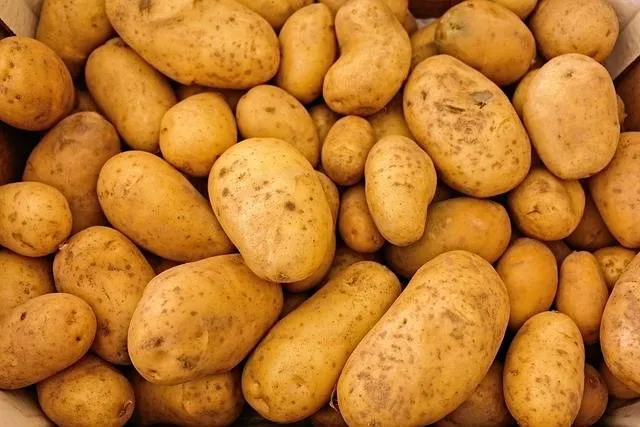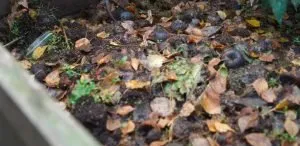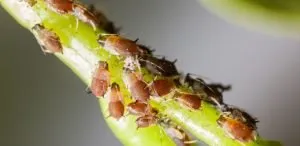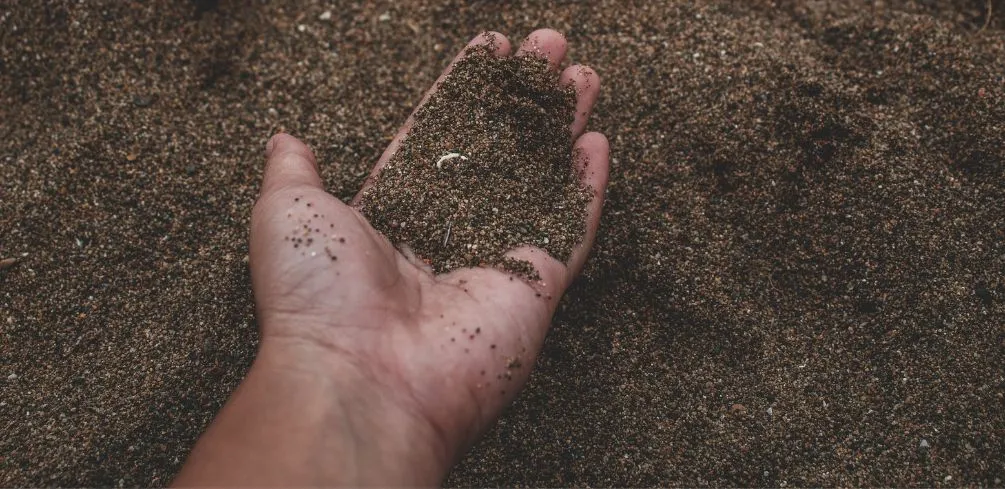Have you ever tasted a potato that seemed to have an earthy flavor? It is a perplexing experience, one that can leave one wondering what could be the cause. From the soil in which it was grown to the way it was cooked, this article will uncover the mystery of why potatoes taste like dirt.
The potato is a staple of diets across the world, and for a good reason. Not only are they incredibly versatile, but they also contain vitamins and minerals essential for human health. Despite their popularity, however, many people are put off by their strange earthy flavor.
This article will take a close look at the potential causes and solutions to this issue. After reading it, you may find yourself enjoying potatoes more than ever before! You will gain insight into why potatoes taste like dirt and how to avoid them in future meals. So let’s get started uncovering this mysterious taste and explore some potential solutions.
Characteristics Of Soil-Flavored Potatoes
The presence of soil-flavored potatoes in a dish is unmistakable. Often described as having an earthy taste, these potatoes contain a musty smell and gritty-texture that sets them apart from other types of potatoes. Occasionally, the potatoes can even appear damp, another indication that the flavor has been affected by the soil.
These potatoes are more likely to occur when stored in an environment with excess moisture and humidity, such as a basement or root cellar. They can also develop this peculiar taste if left in the ground for too long or not washed properly after harvest.
The experience of eating soil-flavored potatoes can be off-putting due to their unique taste and texture. For many people, it’s difficult to ignore the fact that they’re consuming a damp potato; however, there are various ways to reduce or mask this flavor if desired.
Possible Reasons For The Taste
Seeing the writing on the wall, it is clear that there are a number of potential causes for potatoes tasting like dirt. In the effort to uncover the mystery, let us look at some of these possibilities.
First, let us consider potato storage. If potatoes are not stored in a cool and dark place, they may start to spoil faster than usual and develop an unpleasant taste. Also, if potatoes have been exposed to too much light or heat, this can cause them to become bitter and gritty.
Second, pesticide contamination is another possibility for soil-flavored potatoes. Too much pesticide use in potato farming can leave residues on the skin or flesh of the potatoes and give them an off-taste. Quality control is important when it comes to avoiding this kind of problem.
Thirdly, harvesting techniques can also lead to soil-flavored potatoes. If potatoes are harvested too soon or left in damp conditions for too long during harvest season, they may absorb too much moisture from the soil and start to rot before they reach their destination. Rotting potatoes also tend to have a strong earthy flavor as well as an unpleasant texture.
To sum up, here is a list of possible reasons why your potatoes might taste like dirt:
- Potato storage
- Pesticide contamination
- Quality control
- Harvesting techniques
- Rotting potatoes
In short, improper storage or harvesting techniques combined with pesticide residue could be responsible for giving your potatoes an unpleasant earthy flavor. To avoid this issue in the future, make sure you store your potatoes in a cool and dark place away from direct sunlight and purchase organic produce whenever possible!
Sources Of Contamination
Potatoes can taste like dirt for a variety of reasons. Contamination from water, air, and soil are all potential culprits. Water contamination is often caused by runoff from nearby farms that use pesticides and chemical fertilizers.
These pollutants can make their way into the potatoes’ growing environment and be absorbed by the plant’s roots. Airborne pollutants can also reach the crops and cause them to absorb contaminates that make them taste unpleasant.
In addition to external sources of contamination, contaminated compost or other forms of fertilizer may have been used in potato production, leading to an unpleasant flavor. Compost that is not properly managed can contain bacteria or fungi, which will affect the flavor of potatoes grown in it.
It is important to note that potatoes are highly susceptible to contamination due to their porous nature. As such, careful monitoring of growing conditions is necessary in order to ensure that they remain safe for consumption.
This includes taking steps such as testing water sources for contaminants on a regular basis and avoiding the use of contaminated compost when growing potatoes. With proper diligence, it is possible to produce delicious potatoes free from any foul-tasting contaminants.
How To Avoid Future Issues
Steering clear of the same issue is paramount. To ensure dirt-free potatoes and taste prevention, there are several steps that can be taken to reduce soil flavor and prevent soil contamination.
First, it is important to thoroughly wash the potatoes before eating them. This will help eliminate any dirt or bacteria that may have been on the surface.
It is also recommended to peel off any excess skin, as this can also contain dirt and bacteria. Washing should be done in cold water for about 10 minutes; after which, pat them dry with a cloth or paper towel.
Secondly, it is important to store potatoes in a cool and dry place, away from direct sunlight or humidity. Doing so will help keep the potato fresh and keep any bacteria or soil contamination at bay. Additionally, storing potatoes in an airtight container can help extend their shelf life even further while keeping them out of contact with outside contaminants such as dust particles or moisture.
Finally, when cooking with potatoes, it is important to use clean utensils and surfaces in order to avoid introducing additional contaminants into the dish. It is recommended to use stainless steel pots and pans that are easy to clean and sanitize; while scrubbing off any residue between uses with a brush or sponge.
In addition, using separate cutting boards for raw foods such as meat and potatoes will help minimize cross-contamination between ingredients. Taking these simple steps will help reduce the risk of future issues related to soil flavor in potatoes.
Ways To Remove Soil Flavor
Potatoes are versatile and nutritious vegetables, providing essential vitamins and minerals. Unfortunately, they may sometimes taste like dirt due to soil particles adhering to their skins or being held within their flesh.
This earthy flavor can be off-putting and unappetizing. However, there are various ways to mask, neutralize, eliminate, reduce, or remove this soil flavor from potatoes.
The following table outlines various methods of removing the earthy flavor from potatoes:
| Method | Description |
|---|---|
| Masking Soil Flavor | Adding certain herbs or spices to the recipe can help mask the taste of dirt in potatoes. These include garlic powder, onion powder, chili powder, and paprika. |
| Neutralizing Soil Taste | For a milder approach toward removing dirt flavor from potatoes, adding some acidity to the preparation can help neutralize the taste of soil. Lemon juice is a great ingredient for this purpose, as it adds a pleasant citrus note while still reducing the earthy flavor of potatoes. |
| Eliminating Dirt Flavor | A more drastic approach towards eliminating dirt flavor is to soak the potatoes in cold water for several minutes before cooking them. This will help remove any surface soil particles that may have been clinging to them. |
| Removing Earthy Flavor | Boiling potatoes with a little bit of vinegar added to the water can help remove any earthy flavors present in them. The vinegar helps draw out impurities while still preserving the potato’s texture and nutritional value. |
| Reducing Soil Flavor | Another way to reduce soil flavor in potatoes is by washing them thoroughly under running water prior to cooking them. This will help get rid of any loose particles that are clinging to their skins or hiding inside their flesh. |
These techniques can all be used independently or in combination with one another for even better results when trying to rid potatoes of any unwanted dirt flavors before cooking them up into delicious dishes!
Frequently Asked Questions
How Can I Tell When Potatoes Are Contaminated With Soil Flavor?
It’s a mystery that many have tried to solve: why do my potatoes taste like dirt? It can be an unpleasant surprise to bite into a potato only to find it tastes like the soil it was grown in. But the key to understanding this mysterious phenomenon lies not with the potatoes themselves but rather with soil contamination and testing for soil flavor.
Soil contamination can be identified by looking for certain symptoms in potatoes, such as discolored spots, off-flavors, or a strong earthy taste. When these symptoms are present, it often indicates that the potatoes have been exposed to excessive amounts of soil or dirt. Soil contamination testing is then required in order to identify if there is an abnormal amount of soil flavors present in the potatoes.
The best way to tell if your potatoes are contaminated with a soil flavor is by taking a few bites and checking for any off-flavors or an earthy taste. If you find that your potatoes have taken on a bit of dirt flavor, it may be time to test them for soil contamination. Testing for soil contamination can help you uncover the mystery behind why your potatoes taste like dirt and take steps toward improving the quality of your crop.
Are There Any Health Risks Associated With Eating Potatoes With A Soil Flavor?
When potatoes are contaminated with soil flavor, questions may arise as to the potential health risks associated with eating them. The presence of soil flavor in potatoes is an indication that they may have been exposed to contaminants and microorganisms present in the soil. As such, it is important to consider any potential health risks before consuming contaminated potatoes.
Understanding the source of the contamination and assessing any potential health risks is key when dealing with potatoes that have a soil flavor. Eating contaminated potatoes can be risky, particularly if they have been exposed to harmful bacteria or heavy metals in the soil. Salmonella, E. coli, and other foodborne illnesses can occur from eating improperly prepared and stored potatoes.
Additionally, exposure to high levels of lead or arsenic present in some soils can cause serious health issues if consumed through contaminated vegetables.
It is therefore recommended that potatoes with a soil flavor should not be eaten until their source of contamination has been identified, and any potential health risks have been assessed. Taking precautions such as washing vegetables thoroughly before consumption and storing them correctly can help reduce the risk of food poisoning caused by contaminated produce.
Furthermore, purchasing organic produce or growing your own vegetables can help ensure they are free from chemical fertilizers and other contaminants found in the soil.
Is It Possible To Cook Potatoes To Remove The Soil Flavor?
Cooking potatoes can be like a roller coaster ride; you never know what you are going to get. The real question is, is it possible to cook potatoes and remove the soil flavor? This article will explore how to avoid that dirt taste when cooking potatoes.
When cooking potatoes, it is vital to ensure that all dirt and soil particles are removed before they are cooked. If not removed, these particles can leave behind an unpleasant earthy flavor. To avoid this, it is best to scrub the potatoes under running water until all dirt is gone.
Additionally, if you want to take extra precautions against the soil flavor, you can soak the potatoes in cold water for 15 minutes prior to cooking them.
Furthermore, some people suggest adding vinegar or lemon juice to the cooking water as a way of removing any trace of dirt taste from the potatoes. It is important to note that this method does not always work and could make your dish too acidic if too much vinegar or lemon juice is added. In order to avoid this issue, it may be helpful to add small amounts of vinegar or lemon juice at a time until the desired flavor has been achieved.
It remains clear that there are multiple methods for removing soil flavor from cooked potatoes. Through careful preparation and cleaning of potatoes prior to cooking, as well as including ingredients such as vinegar or lemon juice in small quantities during cooking time, one can reduce or even eliminate any hint of a dirt taste in their food.
Are There Any Other Foods That Can Be Contaminated With Soil Flavor?
Soil flavor contamination is not limited to potatoes, as many other foods can be affected. Rice, apples, lettuce, carrots, and strawberries all have the potential to pick up soil-borne flavors if they are grown in areas where there is a high concentration of minerals. This is why it’s important for consumers to be aware of where their food comes from and how it is grown.
There are several ways that soil flavor can get into foods. If crops are grown too close to each other, the water runoff from one crop can spread soil flavor to another. Additionally, if a crop has been harvested in the same area for an extended period of time, the soil will become saturated with certain flavors that could be transferred to the food crops.
The effects of soil flavor contamination on crops can vary depending on what type of food items we’re talking about. For example:
- Apples may develop a gritty texture due to tiny particles of dirt in their flesh
- Carrots may have an earthy taste due to increased mineral content
- Strawberries may have an unpleasant aftertaste because of the presence of soil-borne compounds
It pays to be aware when purchasing produce; research origin and growing methods whenever possible. This allows consumers to make informed choices and avoid inadvertently consuming contaminated foods. Knowing where our food comes from helps us create better eating habits and build healthier communities while creating a sense of belonging within our local food systems.
How Do I Know If My Soil Is Contaminated With A Soil Flavor?
Testing soil contamination is an essential step in determining whether potatoes or any food source, have been contaminated with a soil flavor. By understanding the various methods of testing and preventing contamination, individuals can take preventative steps to avoid having their potatoes taste like dirt.
The first step in testing for potato contamination is to collect a sample from the soil in which the potatoes are grown. Once this sample has been collected, it can then be tested for various compounds that may indicate a soil flavor. To do this, scientists use a variety of methods, such as chemical analysis, spectroscopy, and chromatography. These tests will help determine if there are any compounds present that could contribute to the undesired flavor of the potatoes.
Once the test results have been analyzed, individuals can then take steps to prevent potential contamination in the future. This may include using fertilizers and other treatments that are designed to reduce levels of contaminants in the soil.
Additionally, it is important to monitor water sources for any signs of contaminants that could impact potato plants. Finally, proper storage techniques should also be used to ensure that potatoes remain safe and free from unwanted flavors or odors.
By taking these precautions and understanding how potato contamination happens, individuals can successfully prevent their potatoes from tasting like dirt and enjoy them without worry or concern.
Conclusion
It is clear that potatoes can be contaminated with soil flavor, but the cause remains a mystery. To prevent this from occurring, it is important to investigate the source of contamination. The soil should be tested for any contaminants, and proper storage procedures should be followed.
Additionally, cooking can help reduce the presence of soil flavor in potatoes. While potatoes may be affected by this issue, other foods may also be vulnerable to contamination. It is, therefore, important to take precautionary measures against potential sources of contamination to ensure food safety and maintain high-quality standards.
In conclusion, the mystery of why some potatoes have a soil-like taste must first be addressed by identifying the source of contamination. By testing the soil for contaminants and following proper storage procedures, it is possible to reduce or eliminate potential sources of contamination.
Moreover, although potatoes are particularly susceptible to this issue, other foods may also suffer from similar problems. Thus, an anachronistic approach should be taken when dealing with contaminated food products in order to ensure safety and quality standards are met.











